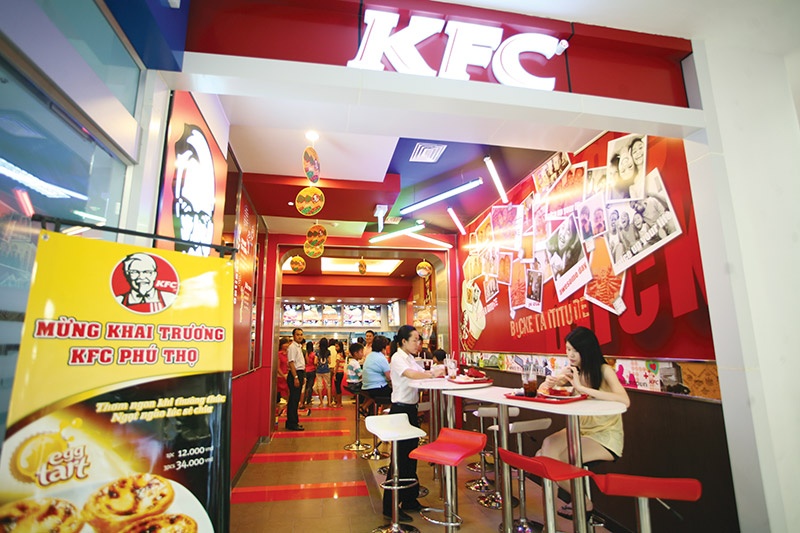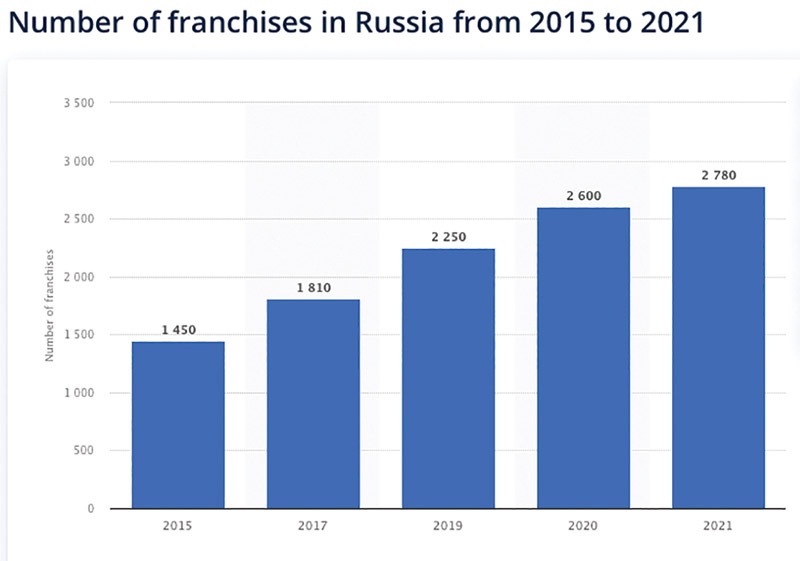The status of franchising when withdrawing from markets
 |
| Pham Duy Khuong, managing director at ASL Law |
The list of famous American and Western brands exiting Russia is getting longer and is full of big names such as Kodak, Subway, KFC, McDonald’s, Hyatt, and Hilton. The way these famous brands are present in Russia is through the traditional and extremely effective method of franchising.
The reasons stated by the parties regarding leaving the country are often associated with protecting the reputation of the brand. To see how this affects Russia, it is necessary to evaluate how franchising is contributing value to the Russian economy.
Currently, Russia occupies a leading position in the world ranking for the growth rate of the number of franchising companies. Russia has about 2,780 franchisors, according to German market and consumer data provider Statista, and over 50,000 franchisees. In the context of the changing Russian economy, franchising continues to be one of the most promising forms of business in Russia. The turnover of the franchising market in Russia accounts for a significant part of the country’s GDP, and in 2017 the figure amounted to more than 3.5 per cent. Thus, it can be said that the withdrawal of famous brands from the Russian market will greatly affect the Russian economy.
The essence is that the party holding the right to a business model allows another party to exploit and use that business model through a franchise contract. In which, the franchisor will hold almost absolute control over the franchisee.
The method of developing a franchise model usually has two methods. The first is the franchisor himself finds the parties who want to receive the franchise and signs a contract directly. The second is that the franchisor signs a master franchise with a developer of the franchise model.
From there, the master franchise contract holder will sign on behalf of the franchisor with the parties wishing to receive the franchise, instead of letting the franchise owner actually sign with the party wishing to sub-franchise the business model.
 |
| KFC joined other groups in pulling out of Russia, but franchising means the process has not been smooth, Le Toan |
Franchising methods
Currently, famous brands appear in Russia through both the aforementioned methods, so there will be a lot of legal issues as to whether these brands can lawfully withdraw from Russia or not.
In the first method, the parent company is still located abroad, and the representative of the parent company in Russia will work on behalf of the partners here. For example, under this principle, American company Subway Russia, with its headquarters in Nevada, sells its business rights. All decisions regarding the granting of a franchise are made by the US office and royalty fees are deposited into the same account monthly. Russian subway franchisees also receive the necessary equipment and materials from the United States.
In the second method, the foreign company sells the exclusive franchise rights to a Russian company (a master franchise). Accordingly, this Russian company will be responsible for implementing franchising on the territory of Russia, conducting training for employees of partner companies, controlling their work, and receiving royalty fees from them. A certain amount of payment will then be transferred to the original franchisor. An example of this model is the Kodak franchise in Russia.
Another model is that the foreign company sells the master franchise to a company located in a third country not related to the US or Russia. From there, this company will sub-franchise to companies in Russia.
Hundreds of US companies in various industries have stopped doing business in Russia amid diplomatic and social sanctions boycotting the country. But some iconic American brands are still serving customers there despite public pressure to force them to close their stores.
One of the main reasons for this is the legal structure with which these companies operate branches in Russia. McDonald’s directly owns 84 per cent of its restaurants in Russia, while the rest is owned by other franchisees. In contrast, RBI, which owns Burger King, operates all 800 Burger King stores in Russia through an exclusive Russian franchisee, which specialises in recruiting local franchisees. The restaurant group said it was not feasible to close all locations immediately because they had franchise agreements that “did not change easily”.
Yum Brands, the parent company of KFC, Taco Bell, and Pizza Hut, is in a similar situation. Yum Brands has temporarily closed 70 company-owned KFCs across Russia. But nearly 1,000 KFC stores are owned by exclusive franchisees and 50 Pizza Hut stores are still open.
Elsewhere, hotel chains Marriott, Hyatt, and Hilton have all halted new developments and closed corporate offices in Russia. But many of their branded hotels are still operating because these companies do not have direct ownership. Marriott said its Russian hotels are owned by third parties and it is “evaluating the possibility” of these hotels remaining open.
 |
Unilateral termination
The original owners of the American and western brands made a unilateral declaration to terminate the franchise agreement. However, if you look at the terms of the franchise agreement, there is no such provision.
Russian law allows the parties to unilaterally terminate the contract with a notice of six months in advance. This is only accepted when the franchise contract signed by the parties applies Russian law. However, in reality, it is very rare for companies owning famous American or other Western brands to accept Russian law or Russian jurisdiction to settle disputes.
Accordingly, the applicable law is usually American or English, and so is the jurisdiction. Therefore, if companies in the US can bring this contract to sue in either of those countries, there is no guarantee that the Russian side will enforce this judgment in Russia in the future.
Despite announcing a withdrawal from Russia, looking up trademark registration data of US and European subjects designating Russia up to March will find the following numbers: Europe still designating 550 trademarks to Russia and the US designating 394 trademarks to Russia.
These numbers are not much different from the situation in 2021 and include major American names such as Google and Apple.
A particularly important factor for famous brands to appear in Russia is that they have successfully registered trademarks here. However, Russian law stipulates that if a trademark is not used within three years, it will be at risk of invalidation. Thus, any other party can then apply for the trademark.
As a result, it is very easy to have a situation in which these well-known brands disappear in Russia and there is no turning back for them. To avoid this risk, companies in the US and Europe will almost certainly maintain a presence in Russia. As such, a withdrawal from Russia is easier said than done.
What the stars mean:
★ Poor ★ ★ Promising ★★★ Good ★★★★ Very good ★★★★★ Exceptional
Related Contents
Latest News
More News
- Balance to find with overtime reform (March 24, 2022 | 11:33)
- ASL Law managing director among top 100 lawyers in Vietnam (March 12, 2022 | 15:42)
- The role of RCEP in economic recovery of the region (February 17, 2022 | 10:22)
- Supporting policies in Vietnam’s social insurance (September 27, 2021 | 17:12)
- PPP law builds on transparency and proper process (August 02, 2021 | 20:30)
- ASL Law introduces Legal Handbook amid COVID-19 times (July 17, 2021 | 09:47)
- Directions for FIEs and employees in benefits disputes (June 03, 2021 | 22:07)
- The keys to M&A attraction (April 28, 2021 | 16:22)
- Building regulations to secure workers’ rights and interests (April 05, 2021 | 14:27)
- Managing partner of ASL Law Firm ranked top 100 lawyers in Vietnam (March 09, 2021 | 10:34)

 Tag:
Tag:



















 Mobile Version
Mobile Version